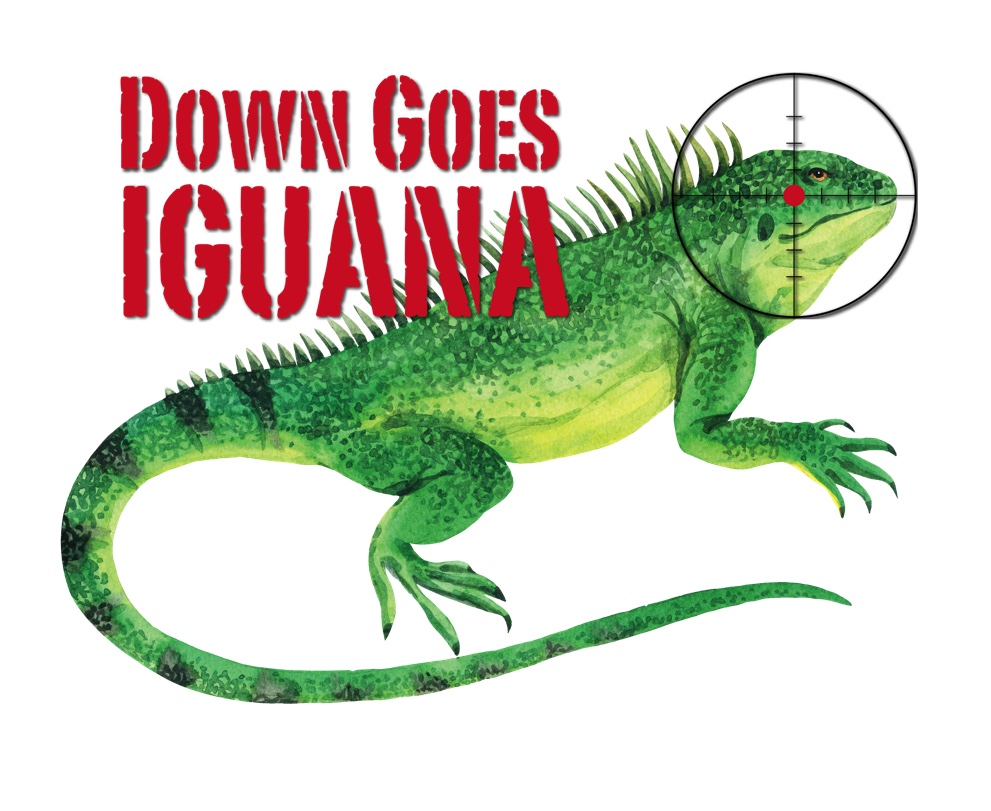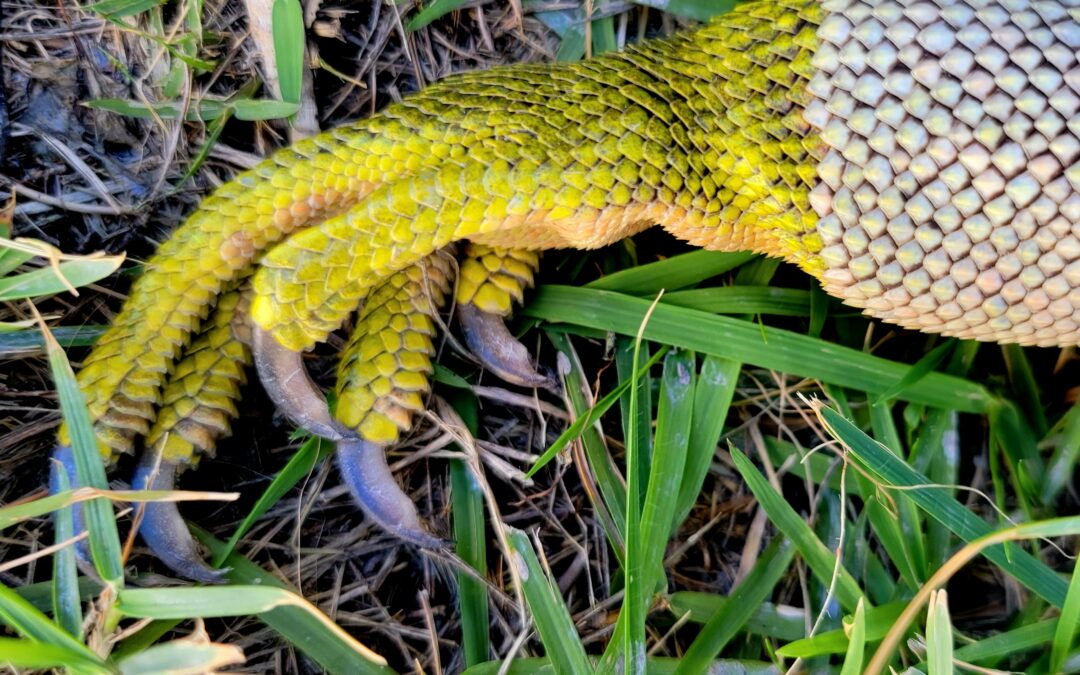It’s mating season for Iguanas here in SW Florida. Typically, it lasts from October and as late as March. Once that occurs, 45 to 65 days from mating, a female will lay her eggs – Plural – as she will have 20 to 70 eggs with 40+ being average. We are in the middle of the mating season and this means there are a lot of pregnant females out there right now. (See recent image) Iguana incubation is 90-120 days from actual egg laying date which depends on ambient temperature. Females do NOT protect or sit on their eggs. It’s drop and go for these reptiles. Side by side image of a very skinny female who recently laid her eggs and a pregnant female, both 43″ long.
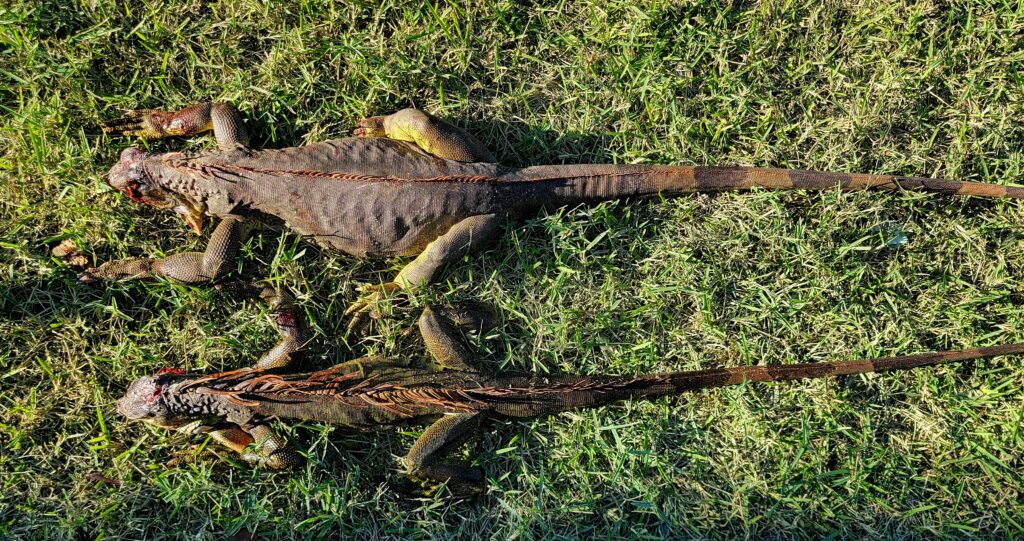
A female will lay eggs every year (sometimes 2x per year) from age 2-4 years old for the rest of her life, which is 10 to 20 years of age. That is a LOT of eggs. A female can also “Store” sperm for several years if she does not mate with a male . . . So she can continue to lay fertilized eggs independently. Yet another reason why our Iguana populations continue to grow.
Typically, an Alpha Male will have a harem of 8 to 15 females in his brood. Do the math – We are looking at around +/- 500 eggs per year, per colony. The “term” for a group of Iguanas is called a “Mess” – Very appropriate as that is exactly what you have.
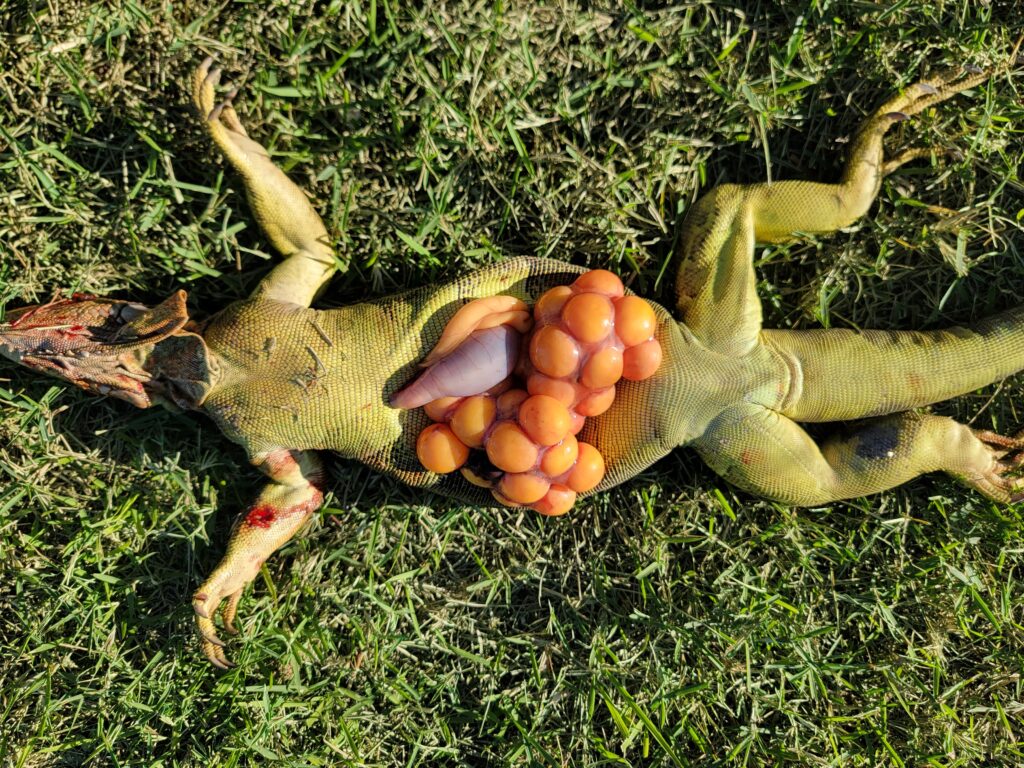
We can expect a lot of brand new Iguana babies to appear in the months of March through July depending on how frisky and when our Iguana friends have been with each other. They grow fairly quickly as seen by this age | size chart.
2 years old Up to 36” Long
5 years old Up to 60” Long
7 years old Up to 72” Long
I recently removed an Iguana on Marco Island that was 62” long and 15+ pounds. They are extremely quick as well, being clocked at 20 MPH – (A small dog is under 10 MPH, while a larger dog is 15-20 MPH. A Greyhound can hit up to 45 MPH). Alpha male Iguanas tend to get a bit aggressive and territorial during mating season. They can bite and will tail whip when challenged, however in most cases they will flee when provoked. Do be careful with your smaller dogs who may attack an Iguana, they also have wicked claws. Iguanas carry salmonella which is quite dangerous for both humans and pets. Be sure to remove Iguana scat from your property – It is a leading cause of Salmonella infections. Wear gloves and thoroughly wash your hands.
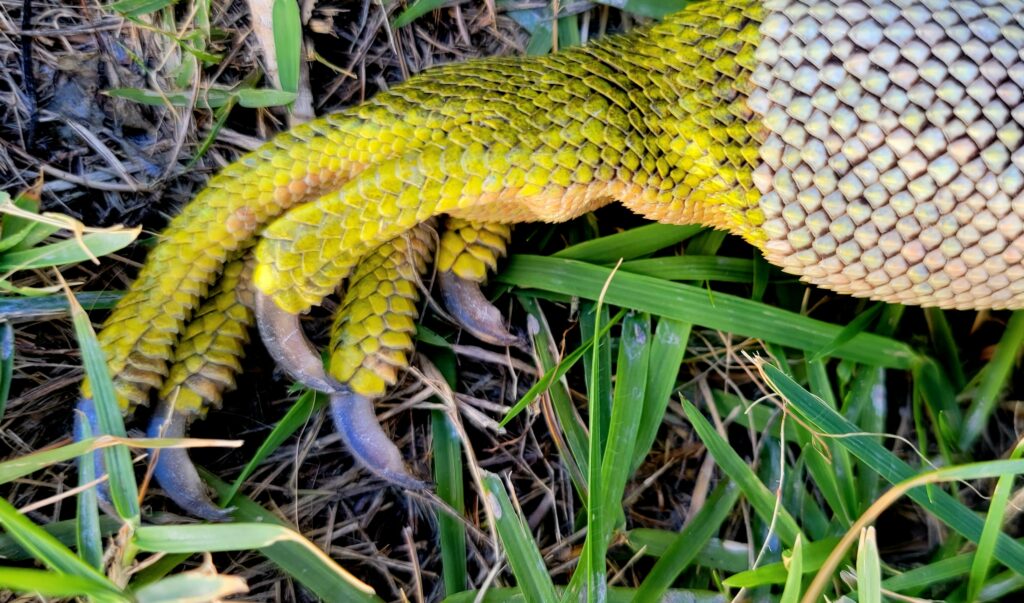
I am permitted as a Florida State Wildlife Control Officer. I also am in direct contact with the Marco Island Police Department to ensure that they are informed when I am on a property to remove an Iguana at the owner’s request. If you want to have an Iguana removed from a property, call/text to 239-344-7706 or eMail hello@dg-iguana.com
John R. Johnson
